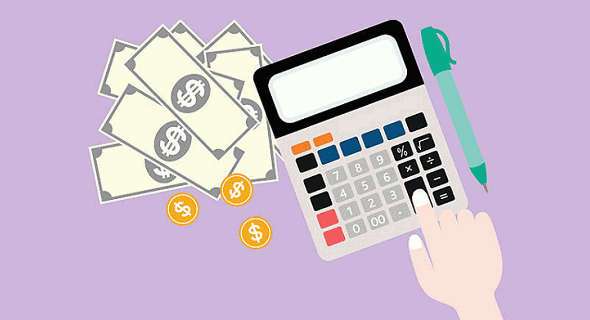Advantages and Disadvantages of Stock Investing – Basically investing is profitable, but full of risks and can cause losses if you don’t do it right. This applies to all types of investments, including stock investments which have advantages and disadvantages.
Stock investment is an investment in the form of shares whose profits are obtained from dividends, capital gains. Meanwhile, shares are defined as proof of ownership of the value of a company.
list of contents
Advantages and Disadvantages of Stock Investment
You need to know, stock investments are like two sides of a coin, besides being profitable, they are also promising. No stock investment is completely profitable. Here are some advantages and disadvantages of investing in stocks:
Stock Investment Benefits
Read: Types of Investments That Can Be Started While Still a Student
Recognized Owner Company Owner
According to the explanation, shares are proof of company ownership. So, if you buy shares, you are automatically recognized as one of the owners of the company. You even have the right to attend the GMS (General Meeting of Shareholders).
Not only that, you can also determine the company’s strategy and appoint company leaders along with other shareholders. Very interesting isn’t it?
Entitled to Dividend
One of the advantages of this investment is that you are entitled to a dividend. The more shares you buy, the bigger the dividends you get.
But you also need to know, dividends are only distributed when the company whose shares you have purchased makes a profit. If you are at a loss, dividends cannot be distributed. In addition, the distribution of dividends must also be based on the approval of the GMS.
Get Bonus Shares
Apart from getting dividends, investing in stocks also earns you bonus shares. Bonus shares are shares given by the company to shareholders which are taken from the difference between the selling price and the normal price of shares when the company conducts a public offering in the primary market.
But not all companies provide bonus shares, this is why it is only a bonus. If not granted then the shares become the property of the company.
Relatively SmallLower Tax Rate (Possibly)
Stock investing results in a capital gain or a capital loss. Both of which are subject to taxation. Generally speaking, short-term holdings carry a higher tax rate compared to long-term holdings.
Short-term capital gains carry the same tax rate as whatever income bracket you’re in.
Long-term capital gains are lower for the most part. The rate can vary, sometimes as high as 20%, as low as 0%, or somewhere in between.
Capital gains taxes are realized after an investment is sold. Investors will report their capital gains and/or losses on Schedule D of Form 1040 of their tax return. Believe it or not, you can file your personal income tax return completely free in most instances.
Tax
If you want to invest in stocks but don’t want to pay high taxes, investing in stocks can be an option. The tax percentage is relatively small, only 0.1% of the final profit.
You also don’t have to bother and bother paying the annual SPT tax because it is automatically deducted when paying off stock transactions.
Safe and Transparent
Stock investment is a very safe investment. The reason is that the activity of buying and selling shares is carried out openly on the Stock Exchange. All are opened transparently and you can monitor yourself how the value of the stock moves from time to time.
Capital Gain
Capital Gain is the profit obtained from the difference between the selling price and the buying price of shares. Capital gain occurs when the selling price of the stock is higher than the purchase price.
For example, an investor buys DEFG shares for 5000 per share. Then resold for 5500 per share, then he gets a capital gain of 500 per share.
Relatively Small Capital
Anyone would really want an investment with a capital that is not too big, but the profits are big. If you are looking for something like that, then stock investment is the right choice.
No need to spend up to millions of rupiah, just with 100 thousand you will get one share with multiple profits in the future. You can even make a profit with a margin of up to 100%.
Read: Which one do you choose, long term, short or medium term investment?
Stock Investment Losses
Behind the advantages, this one investment also has several risks, namely as follows:
Capital Loss
Capital Loss is the opposite of Capital Gain which is a loss from the difference between the selling price and the purchase price of the stock. This capital loss occurs when the investor sells the stock at a lower price than the purchase price.
For example, an investor buys ABCD shares for 5000 per share, then the stock price drops to 4500 per share. For fear that the price will continue to fall, the shares must be sold so that investors get a Capital Loss of 500 per share.
Suspend
In addition to Capital Loss, another risk if you invest in stocks is experiencing suspension. This happens when the company’s trading is terminated by the Indonesia Stock Exchange due to many reasons.
If there is no trading activity, then you can no longer carry out stock trading activities until the suspension is lifted.
Not Getting Dividend
Who says by buying shares you always get dividends. In fact, companies do not always pay dividends because they suffer losses. In addition, if in the GMS the majority of shareholders do not agree with the distribution of dividends, then you cannot get it.
After knowing the advantages and disadvantages, I suggest for you to be wiser in investing. Regarding stock investment, you should choose a blue chip company with good fundamentals.
Blue Chip is the stock of the best performing company on the stock exchange. That way, you can minimize the risk of losing money in investing in stocks.







